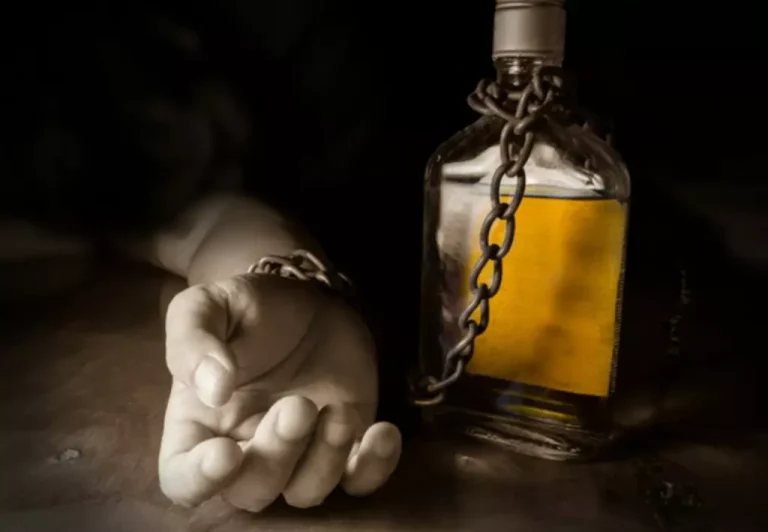
Therefore, detox can be done at either a local medical facility, dedicated detox center, or treatment center that also offers detox services such as Grace Land Recovery. Attempting to self-detox can end up causing even more harm and can even be life-threatening. Excessive alcohol use can have other visual and non-visual adverse effects on the body that can cause premature aging. Heavy alcohol use can even prevent the male body from being able to make testosterone properly. This combination of hormonal issues can lead to the development of breasts in men. It can also lead to men carrying their weight around their hips and thighs instead of their bellies.

LIMITED TIME OFFER

It also can impact judgment, reaction time, and driving ability. At age 61, body water decreases in both sexes—to 57 percent in men and 50 percent in women. Your doctor can give you abuse screenings to see how your drinking has affected your health. They can also recommend alcohol abuse programs specifically for older adults. Consider your current health conditions and medications before you drink.
Research shows we process liquor differently over time. What does that mean for your health?
It’s true that I sleep better and feel better on mornings after abstaining. My drinking — mostly beer in the summer and wine in cooler months — tends to be mindless and habitual. Ideally when I drink, I’ll pause and ponder the intriguing viognier in my glass before raising it to my lips. And although cutting back on alcohol can give your skin a chance to regenerate, some damage cannot be reversed. All in all, the sooner you quit or moderate your drinking, the better. Telomeres are small biological caps on the ends of chromosomes which have the sole purpose of protecting the DNA in our chromosomes from getting damaged.
Alcohol Consumption Changes the Aging Clock
(A drink is one 12-ounce can or bottle of beer, one 5-ounce glass of wine, or one 1.5-ounce shot of an 80-proof or less liquor.) Talk with your doctor to find out what’s right for you. Alcohol can affect the way your body fights off life-threatening illnesses like tuberculosis or pneumonia. Researchers are also studying the possibility that alcoholic liver disease might be caused, at least in part, by your immune system attacking healthy body tissues. Alcohol can affect the way some vital organs work and make them age faster. While heavy drinkers are more likely to have cirrhosis (permanent damage to your liver), even moderate drinking can lead to problems like fatty liver disease.
Instead of lulling you into a restful night, alcohol can actually keep you from getting to sleep and lead to restless slumber. That can be particularly hard on seniors, who are already more likely to wake up often or have a sleep disorder like insomnia. As you get older, you have less water in your body and — for reasons that aren’t quite clear –you also feel thirsty less often. Drinking alcohol can pull more water out of your body and make your chances of dehydration even higher.
- She emphasizes that the intensified effects are particularly dangerous for older adults who may already have slower reaction times and poor balance.
- Of course, this amount may vary depending on your own health and body type.
- Drinking while taking medications across a host of drug classes also can cause serious side effects in older adults, especially drugs with sedative effects.
- In other words, alcohol’s ageing effect is greater the younger you are.
- Aging is a natural process, but what if you’re aging faster than you should be?
- Depressive symptoms like insomnia, mood swings, and anxiety can mimic those of alcoholism.
Alcohol’s all-around negative effect on nutrition means that heavy drinkers often become malnourished. This limits the body’s ability to maintain itself, resulting in faster aging. Scientists also found that participants diagnosed with an alcohol use disorder, more likely to be heavy drinkers in comparison, had significantly shorter telomeres as well. The shorter telomeres were equivalent to 3-6 years of biological ageing.

A recent study by researchers in Denmark focusing on telltale signs of aging found that men who consumed more than 35 drinks a week were 35 percent more likely to display “arcus corneae,” a gray ring in the eye that often pops up in old age. Women who had 28 drinks or more per week had a 33 percent higher chance of developing the same syndrome. By adding extra stress to your body and depriving it of the nutrients it needs to rebuild, alcohol can place you years ahead in the aging process, and affect how you look.
- Talk to your primary care doctor about your alcohol consumption—they can help you understand potential medication interactions and additional risks as you age.
- Studies of fruit flies, mice, and zebrafish have also pointed to a stepwise aging process in those species.
- This can be the direct result of changes to the composition of the body and hormonal changes.
- Drinking alcohol can pull more water out of your body and make your chances of dehydration even higher.
- Ria’s telemedicine-based program is designed to simplify things, allowing you to access the support you need from the comfort of home.
- That way people with alcohol use problems can receive the help and support that they need while they continue to live their lives.
Or, they could create additive side effects such as heightened drowsiness or an increased risk of gastrointestinal bleeding, says Moore. If you’re taking any medication, be sure to read the package label and insert carefully—and/or talk to your doctor—to see if you should abstain from drinking alcohol altogether. When you drink alcohol, it’s absorbed through the small intestine, processed by the liver, and circulated through your major organs. As you get older, you have less muscle mass and your liver isn’t as strong. This causes the effects of alcohol to be stronger, even if you’re drinking the same amount you always have. As you get older, alcohol starts to affect you more than usual.
- When the liver gets damaged as a result of alcohol use, it can indirectly lead to skin damage.
- When you drink, try to have a meal or snack before having a cocktail or have a glass of wine with a meal, which will slow absorption of alcohol, Weaver says.
- If you’re looking to reduce your alcohol intake, or try an entirely sober lifestyle, your doctor can help with that as well.
- Using huge databases, which contain lifestyle and clinical data on millions of people in the UK and US, and the largest brain imaging and genetic samples worldwide, her work aims to clarify how alcohol affects brain structure and function.
- It’s normal for hair to turn gray and become thinner as we age, but stress can make the process happen earlier.
But too much can lead to an abnormal heartbeat and high blood pressure. Every alcoholic drink goes “straight to your head,” or at least to your brain. Heavy drinking over a long time can shrink brain cells and lead to alcohol-related brain damage (ARBD) and certain types of dementia. Symptoms of that include lack of judgment, organization, or emotional control, trouble staying focused, and anger issues. It used to alcohol makes you age faster be thought that moderate alcohol consumption confers health benefits, but experts now recognize that regularly imbibing can have a variety of harmful health consequences. “It can exacerbate depression, increase blood pressure, and lead to cardiac arrhythmias,” Koob says.
This Week’s Top 5
It’s safe to say that people in England enjoying having a drink, with almost half (48%) having a tipple at least once a week. According to a 2021 National Survey on Drug Use and Health, 62% of people age 12 years or older consumed alcohol in the past year and 21.5% of that group binged alcohol in the past month. People who drink may notice that they’re “feeling no pain” sooner as they get older.